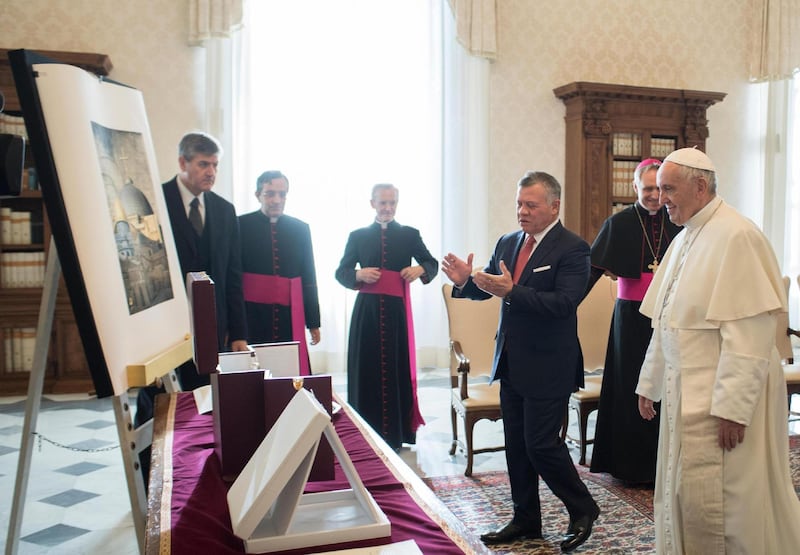King Abdullah of Jordan and Pope Francis met on Tuesday in Vatican City to discuss US president Donald Trump’s decision to recognise Jerusalem as the capital of Israel. The two also addressed Jordan’s role as custodian of the city’s holy sites.
King Abdullah presented the pope with a painting of Jerusalem’s Old City, which features the Islamic Dome of the Rock and the Christian Church of the Holy Sepulcher.
The two men had “cordial conversations focused above all on the theme of the promotion of peace and stability in the Mideast, with particular reference to the question of Jerusalem”, said the Vatican in a statement.
“In this context, the commitment was renewed to encourage negotiations among the interested parties, as well as promoting inter-religious dialogue.”
King Abdullah reiterated the need to respect history and international law pertaining to Jerusalem, reported the state-run Petra news agency.
He also urged the international community to increase efforts to protect the rights of Palestinians, Muslims and Christians in Jerusalem, which, he added, represents ‘the key to achieving peace and stability in the region”.
Jordanian officials, including King Abdullah, have repeatedly denounced the US announcement on Jerusalem as “a violation of international rights”.
Pope Francis called for “respect of the status quo” in Jerusalem earlier this month, warning against “a new spiral of violence”.
Mr Trump’s decision to recognise Jerusalem as Israel’s capital, and his plans to move the US embassy there from Tel Aviv has sparked outrage and protests across the world, particularly in the Middle East.
The international community does not recognise Israel’s sovereignty over Jerusalem, and countries maintain their embassies in Tel Aviv.
The UN has long maintained that the only way to forge peace is to have two states — Israel and Palestine — with Jerusalem as the capital of both and the borders returned to their status before the 1967 Arab-Israeli War.
The US on Monday vetoed a UN Security Council resolution rejecting Mr Trump’s decision, while all 14 other members of the council backed the draft resolution.





